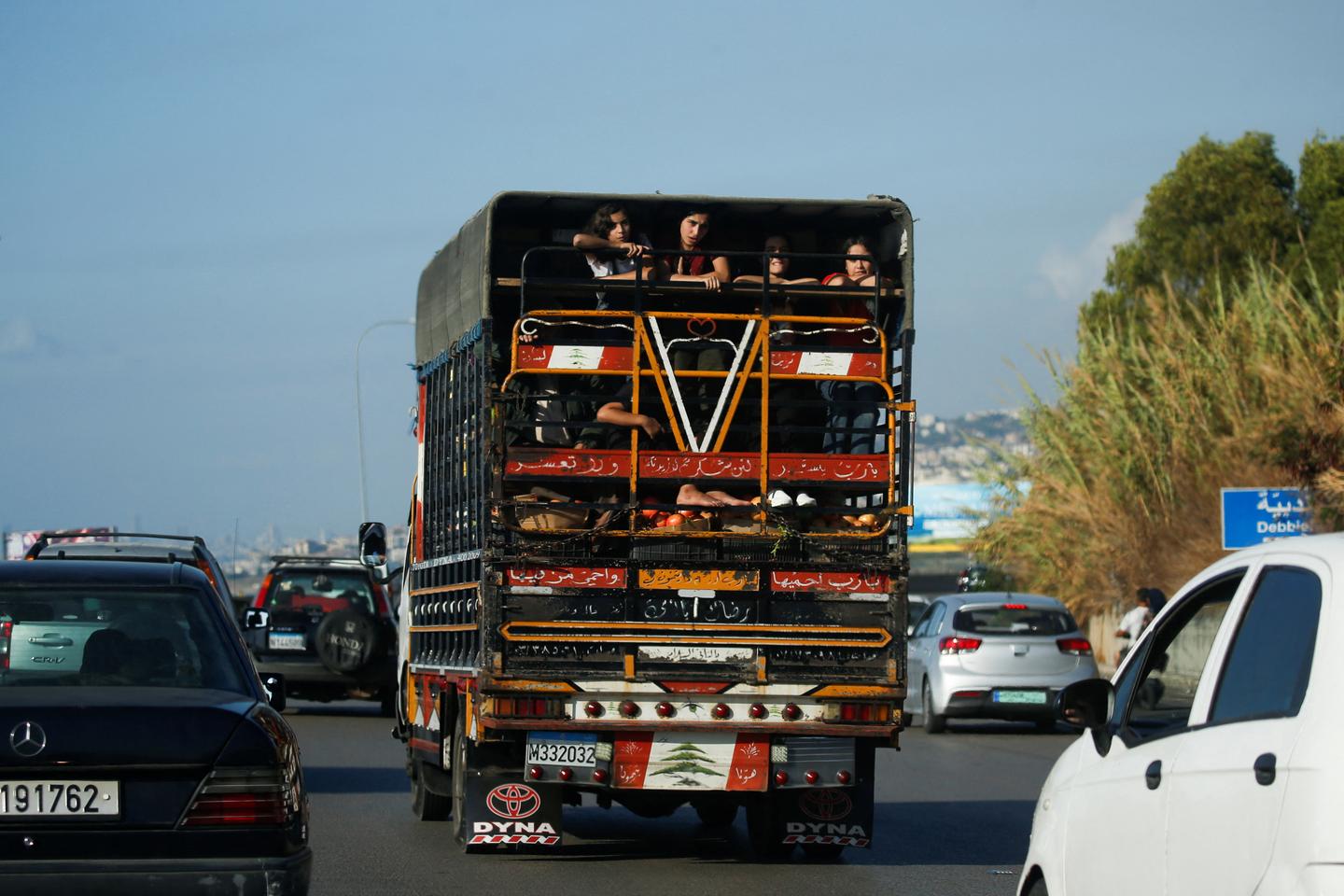On Monday, September 23, in the early afternoon, Jawad and Zeina (they declined to give their last names) parked their black 4×4 near an elementary school on the outskirts of Sidon, the entry point into southern Lebanon. They sat in their car until they recovered. Their escape from the border region with Israel, whose army has killed almost 500 people in its deadliest attack in a year, has been exhausting. The school, located in the Shiite suburb of Haret Sidon, was just opened by the local authorities to accommodate an unprecedented wave of displaced persons. The tumult of war has finally caught up with the coastal city, paralyzed by monster traffic jams that have revived memories of the 2006 war exodus.
It took the couple four hours to reach Sidon from their village of Burj el-Shemali, near Sour, further south. Normally, the 40 kilometer journey takes just over an hour, but tens of thousands of Lebanese in the south like them fled northward as soon as Israel began its massive bombardment of the border region on Monday morning. As elsewhere in Lebanon, there is nowhere to take refuge in the southern towns.
The Israeli army’s call for those living near homes and buildings where Lebanon-based Hezbollah had stockpiled weapons to “leave the area without delay” was seen as an announcement of indiscriminate strikes. Some residents received evacuation orders by text message on their phones from an unknown local number. Bombing had already begun in some areas.
“The Israelis started bombing our village at dawn. There were still bodies under the rubble when we left, even children’s bodies. We were so scared,” said Jawad, a 43-year-old mechanic, his face drawn and still in shock. He and his wife, a 42-year-old nurse, had never left Burj el-Shemali, which has been relatively untouched since Hezbollah launched a low-intensity war against Israel on October 8 in the wake of the Hamas attack on Israeli territory, in support of the Gaza Strip, which had been caught under a deluge of Israeli fire.
Macabre countdown
While his wife Zeina discreetly breastfed their child, born 20 days ago, covering it with her black veil, Jawad made a series of phone calls. He asked about the fate of his loved ones. He sounded out those living in the Beqaa Valley to find out if it was possible to take refuge with them. The couple had no money to rent an apartment. The news everywhere was appalling. All day, southern Lebanon and the Beqaa Valley were massively bombarded.
Israel announced that it had hit “around 1,600 terrorist targets,” including “hundreds of Hezbollah targets” during the operation, which it named “Northern Arrows.” The Party of God retaliated by firing over a hundred projectiles, notably around Haifa and in the occupied West Bank. Lebanon’s resigning prime minister Najib Mikati denounced “a plan to destroy” his country.
You have 66.15% of this article left to read. The rest is for subscribers only.

